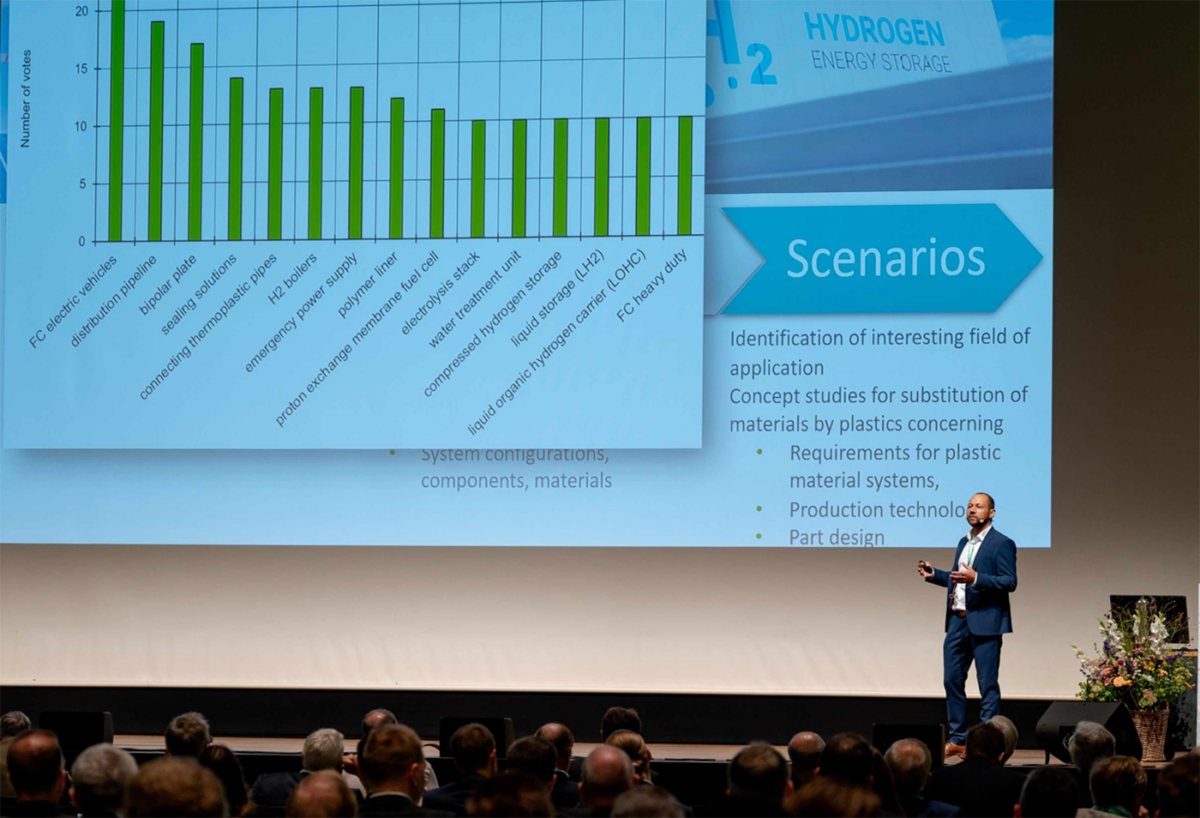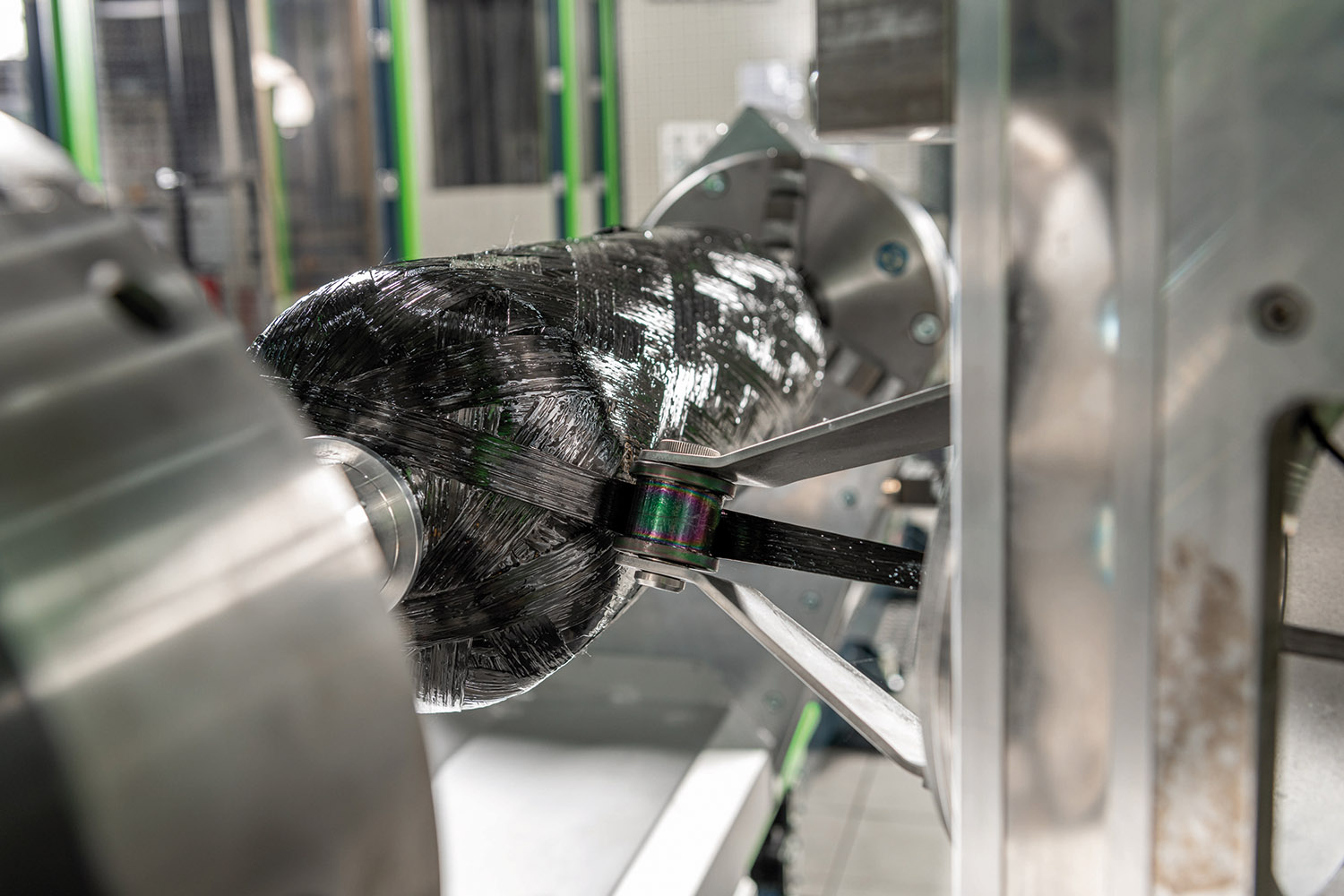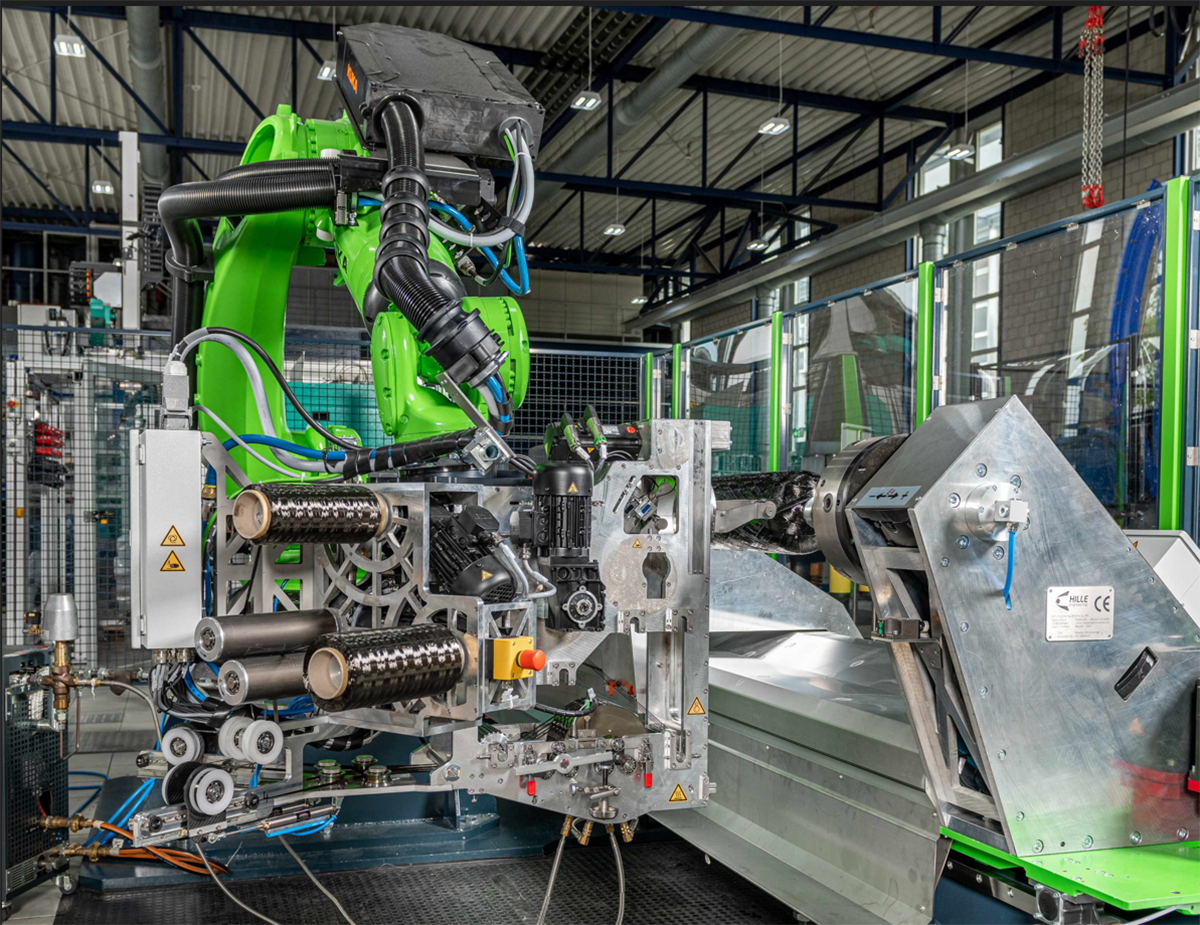The Future of Plastics: The Technology – Chapter 2 of 3

The future of the plastics industry emerges as a focal point, in a world inundated with crisis reports and the relentless hustle of daily life. It’s crucial to take a step back and examine the industry through different lenses.
In a recent issue of Plastics Engineering, we delve deep into the future of plastics, presenting insights from three viewpoints. This second chapter emphasizes THE TECHNOLOGY, based on an interview with Dr.-Ing. Kai Fischer, Scientific Director of Lightweighting and creator of the International Hydrogen Business and Technology Forum at IKV.
You can also read: Novel Process Affordably Turns Waste Plastic Into ‘Green’ Hydrogen, How Fuel Cells and NAFION Reshape the Automotive Landscape, 32nd IKV Colloquium, The Five Cutting-Edge Topics
This summary encapsulates the interview’s key points, emphasizing the role of plastics in advancing hydrogen technologies. In addition, it addresses manufacturing challenges for decarbonization efforts.
Hydrogen’s Role in Decarbonization
The Hydrogen Council report examines hydrogen’s role in energy systems across Texas, Central Europe, and Japan. Across all regions, hydrogen offers decarbonization potential, lowering system costs and contributing over 15% to power generation capacity.
Dr. Kai Fischer highlights the importance of hydrogen in global decarbonization efforts due to its potential for clean energy transfer, especially from regions with abundant renewable sources like wind energy. For instance, Hydrogen Turbines will complement batteries by providing long-duration flexibility during prolonged storage periods.
Plastics’ Contribution to the Hydrogen Value Chain

At the Plastics Innovation Center 4.0 was possible to see a robotic filament winding by fiber-reinforced plastics (frp). The manufacturing cell showed a pilot production of type-4 pressure vessel (700bar) for hydrogen storage, scaled 47% from the real process (1500bar). During the 32nd IKV Colloquium.
The interview explores integrating plastics expertise into the hydrogen sector to develop cost-efficient, energy-efficient, and durable systems. In the same vein, the hydrogen value chain must consider the way from generation and storage to distribution and conversion. At the Plastics Innovation Center 4.0 was possible to see a robotic filament winding by fiber-reinforced plastics (frp). The manufacturing cell showed a pilot production of type-4 pressure vessel (700bar) for hydrogen storage, scaled 47% from the real process (1500bar).
Collaboration and Innovation
Collaboration between end-users, the plastics industry, and the hydrogen community is emphasized as essential for identifying opportunities and developing solutions. The initiative aims to move beyond simple material substitution to innovative component design and function. This must include, of course, the active involvement of governments, industry and investors to achieve adequate infrastructure and market incentives. This is one of the key functions of the International Forum for Hydrogen Business and Technology Forum, created by IKV and led by Dr. Fischer.
Success Stories and Initiatives

Construction Proposal of a Hydrogen High Pressure Vessel. For this specific case study, the IKV showed research on the material substitution of stainless steel with fiber-reinforced plastics based on the permeation assessment throughout a range of geometries, types of gases, pressures, and temperatures.
Examples such as developing plastic flow lines for electrolyzers and establishing test facilities for plastic materials under high-pressure hydrogen atmospheres demonstrate the practical applications and advancements resulting from collaboration and innovation. For this specific case study, the IKV showed research on the material substitution of stainless steel with fiber-reinforced plastics based on the permeation assessment throughout a range of geometries, types of gases, pressures, and temperatures.
Digitalization and Challenges in Manufacturing
Dr. Fischer discusses the importance of digital twin models in optimizing the design and manufacturing process of high-pressure vessels. Challenges include reducing material usage, improving automation, and achieving repeatability in production, all crucial for industrialization and long-term viability. He highlighted the importance of getting inline data acquisition as a milestone for a reliable understanding of empirical know-how in order to get high-quality components.
“Collaboration between end-users, the plastics industry, and the hydrogen community is essential for identifying opportunities and developing solutions that go beyond simple material substitution to innovative component design and function.” Dr.-Ing. Kai Fischer
To read more: New report highlights the integral role of clean hydrogen in decarbonizing energy systems | Hydrogen Council
